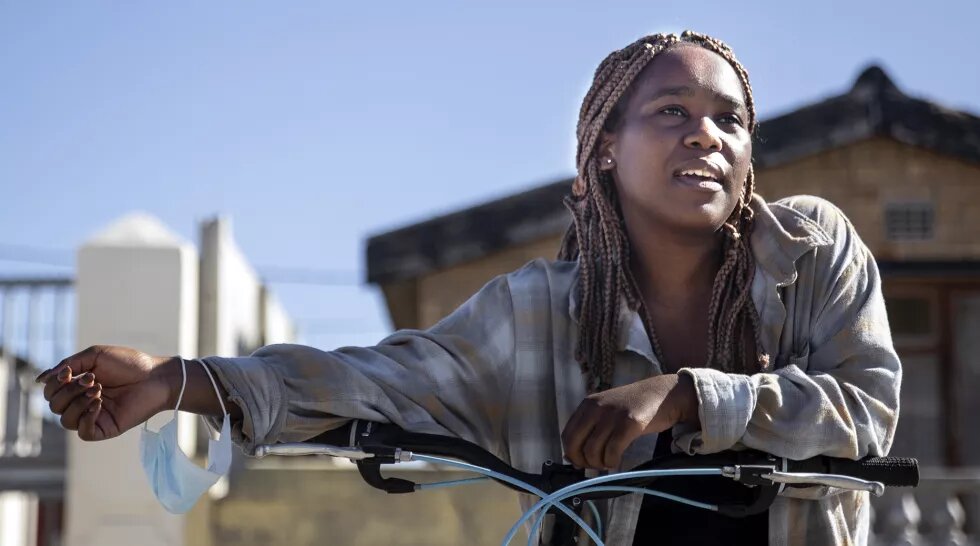In a country characterised by myriad gates, security personnel and other barriers, taking ownership of public space might entail both raising awareness of what public space means and thinking about our private spaces differently. Khayelitsha resident Khanya Qongqo takes us on her journey to this conclusion.

Based in Harare, Khayelitsha, Khanya Qongqo helped set up a community kitchen in mid-2020 and received a bicycle as a donation to help with kitchen duties. Since then she has become an advocate for bicycles as a way of travelling and connecting with others in her neighbourhood. Now 26, Khanya learnt to cycle as a child, but never owned a bicycle before last year. She says the best part is that she is “able to get from point A to point B without depending on anyone”.
Though she contends with daily safety issues on the road, she wants to see more people, particularly women, on bicycles. In fact, Khanya says she feels safest when cycling with others and in 2020 joined several social rides. She says motor vehicle drivers need education and awareness about bicycles: “Because you own a car, it doesn’t mean you own the road.”
The idea of ownership comes up in several of our conversations and Khanya has made me reflect on the porous boundaries between public and private spaces, particularly in the context of the Covid-19 pandemic. She explains how through her community action network, a soup kitchen was set up in her backyard. Soon children and other people started coming in to get food, “no questions asked”. In her view, the fact that the yard was no longer controlled by her made it a public space.
Khanya says a community centre is what they needed. But when trying to get such space they were met with closed doors. In turning her home into a “community centre”, Khanya highlights the inadequacy of our systems, which prevent people from using common spaces paid for by taxes. It also points to the transformation of private spaces to serve those unmet needs among residents.
Indeed, she speaks of the Khayelitsha Mall as a public space, too, since this is where people spend a lot of time, socialise and enjoy an afternoon on a weekend. In addition to the convenience of buying what is needed, the mall also provides a sense of safety and protection.
When it comes to public spaces and the opportunity and need to improve them, Khanya talks about a park near her home in Harare as well as the local police station. She says both have an environment and a look that is uninviting and hostile. “It would be nice to make the park green, add plants, make it a happy place for kids,” she says.
Read the full article on Daily Maverick
This article was firtst published on the Heinrich-Böll-Foundation page of the South Africa Office.


